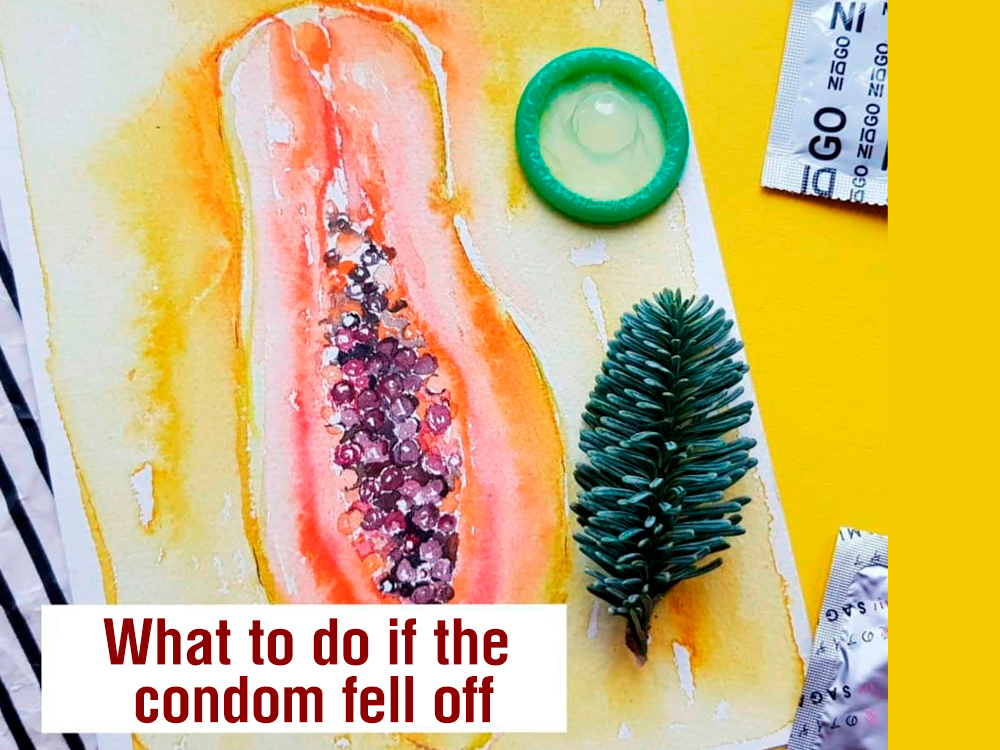Emergency contraception measures
health , contraception , gynecologist , Maria Chesnokova , doctor answers
Text and photo: Maria Chesnokova
May this post may never come in handy, but it's best to bookmark it just in case.
mistakes in using a condom:
– oil lubricant with a latex condom (many are still surprised that a condom tears if you use “Johnson's baby” oil);
– a condom that is not matched to its size (which flies or breaks);
– you do not hold the condom after ejaculation, or take too long a pause before removing the condom (with some men, after discharge, the erection disappears very quickly, which means the condom may slip off);
– ignoring the expiration date of the condom.
Of course, there are other reasons why a condom can treacherously slide or tear, but now it's not about that, but about what to do if it happens. To make the post as informative as possible, I turned to the specialists from the “A.medclinic”. Gynecologist Anastasia Glazkova commented on emergency contraception.
In life, situations are different. You may not be ready for everyone. But there are times when you need to act quickly and clearly, for example: a condom tears/falls off, there is a risk of unwanted pregnancy, what should I do?
Step 1. Don't panic. There are special preparations for this case. These are tablets you can take within 72 hours and no later than 120 hours. Do not use them later! They won't work!
Step 2. We get dressed and go to the pharmacy. We buy the medicine and take it. If your gynecologist is always in touch with you, it is better to consult with him/her.
Step 3. Exhale. The life goes on. We go to our gynecologist.
What if there is no way to go to the gynecologist? For example, you are in another country.
Try to find doctors who can answer online. More precisely, they consult you offline and know everything about you, then the consultation makes sense.
How long does it take to see a gynecologist after taking emergency contraception measures (EC)? The faster – the better, or just when will it work out?
There are no directly obligatory dates of some kind, if nothing bothers you, the menstruation has begun, then you can visit the gynecologist, as planned, if there are complaints and menstruation has not begun, have your blood tested for hCG and go to the doctor.
Is it always necessary to take emergency contraception measures or can you assess the risks depending on the day of the cycle and not take EC?
It is possible to assess the risks depending on the day of the cycle and decide if EC is needed.
Can only a gynecologist assess the risks associated with pregnancy?
Not necessary. The woman herself, understanding her cycle, can roughly calculate the ”dangerous days”. If the incident occurs before your period, pregnancy is unlikely to occur. But this, of course, is not a 100% guarantee, because even during your period you can get pregnant.
Do you need to take EC measures only if there is a suspicion that sperm entered the vagina? If the condom fell off, but the partner did not ejaculate, what are the risks of getting pregnant?
There is always a chance, since there may also be sperm in the pre-ejaculatory fluid. But the risk is, of course, lower.
How to protect yourself from STIs if a condom tears? Are there any emergency methods? Or just get tested after the incident?
Unfortunately, there is no rapid preventive treatment for STIs. For victims of sexual violence, as this is committed by conditionally already infected people, antibacterial therapy can be used, not ANTISEPTICS, I emphasize, but antibiotics prescribed by a doctor. Alas, yes, you need to get tested!
How long does it take to get tested and for what infections?
– vaginal smear by PCR method – 1 week after contact (mycoplasma genitalia, gonococcus, chlamydia trachomatis, Trichomonas vaginalis);
– hepatitis B – 2-9 weeks after contact;
– hepatitis C – 4-12 weeks after contact;
– HIV – 8-12 weeks after exposure;
– syphilis 2-6 weeks after contact.
There is a myth that Postinor and other medicines can be taken only a few times in a lifetime. Is it true?
Emergency contraception is a kind of “plan B”, so to speak, if an emergency happens! EC is a one-time contraception! The method is not recommended for permanent use.
It is believed that emergency contraception is harmful. Is it so?
Emergency contraception can be used even among those women who have contraindications to continuous use of hormonal contraceptives. Some types of emergency contraception do not contain hormones at all. But the method is not recommended for permanent use, only occasional use!
What is harmless to the body – EC or early medical abortion?
It is much safer and better to prevent pregnancy than to have an abortion.
Editor's note: we recommend in any case to consult a doctor before taking any emergency contraception measures.

Comments (0)
Чтобы оставлять комментарии, необходимо авторизироваться.